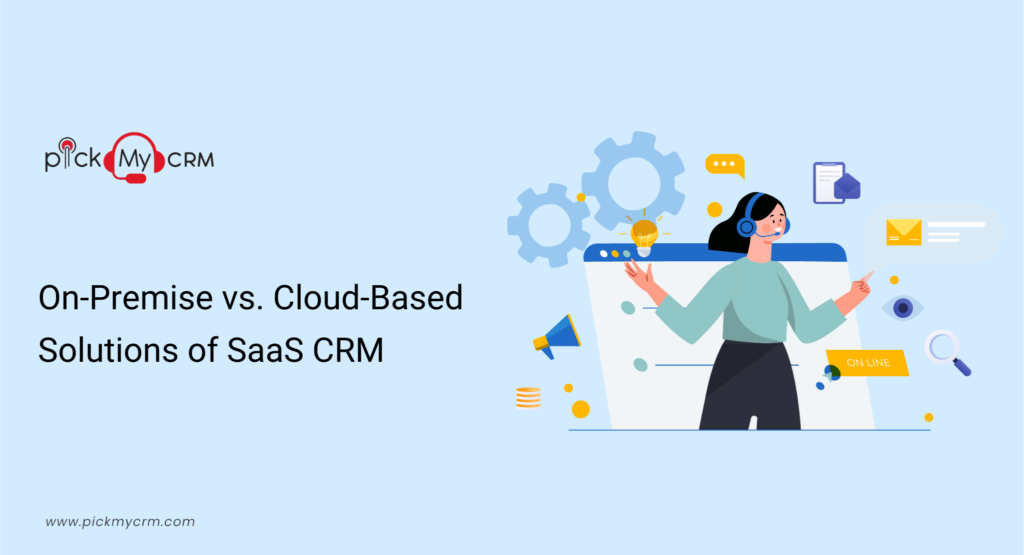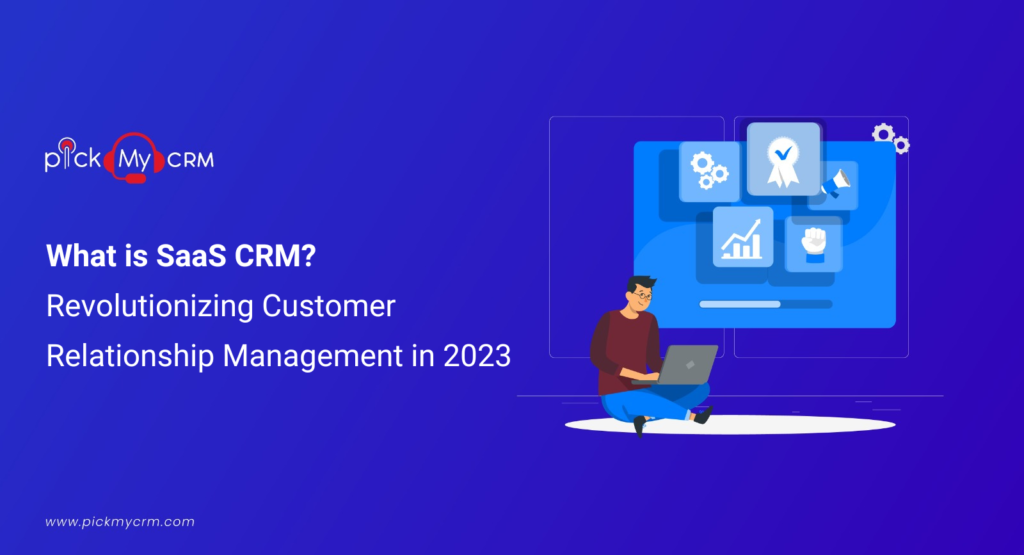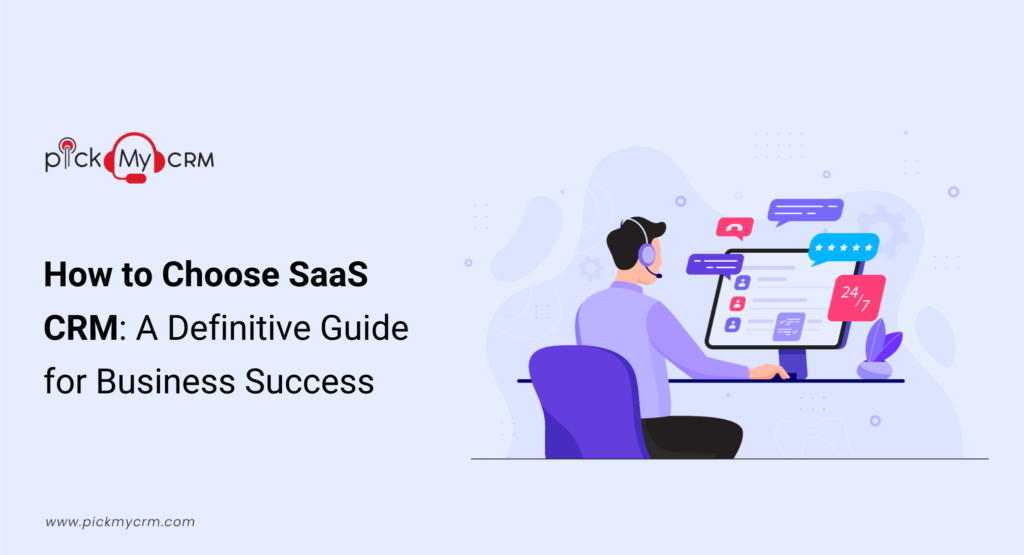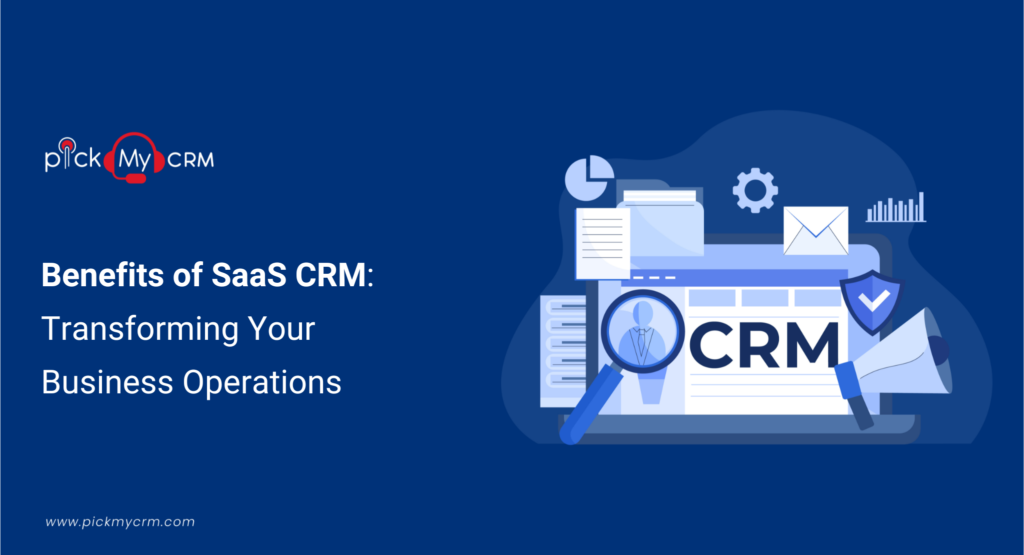On-Premises vs. Cloud-Based Solutions of SaaS CRM

The SaaS CRM Landscape in 2023: Key Statistics
As we Step into the digital age of 2023, the adoption of SaaS CRM solutions has reached new heights. Recent statistics underscore the evolving preferences of businesses, Cloud-Based SaaS CRM Surpasses 70% Adoption: Cloud-based SaaS CRM solutions have experienced a remarkable surge in adoption, accounting for over 70% of CRM implementations in 2023. Cloud-based SaaS CRM gains momentum due to scalability, accessibility, and cost-effectiveness, drawing more businesses to this approach. On-Premises CRM: A Niche Choice: On-premises CRM systems, favored in industries with strict data security and compliance needs, have seen declining adoption, constituting less than 20% of CRM implementations in 2023 due to challenges in maintenance and scalability.What is On-Premises and Cloud-Based Solutions of SaaS CRM?
On-premises CRM is a conventional software deployment model where the CRM software is installed and operated on the organization's servers and infrastructure. It grants the company control over the CRM system, including hardware, software, and data storage. Cloud-based CRM, also known as Software-as-a-Service (SaaS) CRM, is a contemporary deployment model where the Customer Relationship Management Software is hosted and managed by a third-party vendor on their servers. Users can access the CRM system through a web browser or mobile application, eliminating the need for complex infrastructure and server management.Why choose On-Premises and Cloud-Based Solutions of SaaS CRM?
Customer Relationship Management (CRM) software is integral in optimizing customer interactions, streamlining sales procedures, and elevating customer contentment. For CRM Deployment, Organizations can choose between On-Premises and Cloud-Based CRM (or Software-as-a-Service/SaaS CRM). Discerning the distinctions between these solutions is pivotal in making an enlightened choice that harmonizes with business needs. Let's explore the intricacies of On-Premises CRM and Cloud-Based CRM to develop a thorough comprehension of their attributes, advantages, and factors to ponder.Advantages: On-premises solution of SaaS CRM
Control and Security
On-premises CRM solutions provide unparalleled control over your data and infrastructure. Here's how,- Data Ownership: With on-premises CRM, you retain full ownership and control of your data. It is particularly crucial for businesses operating in highly regulated industries with strict data privacy requirements.
- Custom Security Measures: You can implement customized security measures that align with your organization's needs and compliance standards. This level of control allows you to fortify your CRM system against potential threats.
Customization
Tailoring your CRM system to align perfectly with your unique business processes and workflows is a Major advantage of on-premises solutions,- Business-Specific Customization: On-premises CRM allows for deep customization. You can modify the software to accommodate your business requirements, Ensuring that it Seamlessly integrates with your existing systems and processes.
- Competitive Edge: Refining your CRM for a competitive edge. Tailor it to your exact needs with template freedom.
Data Localization
In regions with data sovereignty laws, on-premises CRM provides a solution. It enables compliance by storing customer data locally on your servers, meeting requirements in countries mandating such measures.Integration Flexibility
Integrating your CRM system with other software and systems is often easier with on-premises solutions,- Controlled Integration: You maintain control over integrating your CRM with internal applications, ensuring smooth data flow and process automation.
- Legacy Systems: If your organization relies heavily on legacy systems, on-premises CRM can be more adaptable in bridging the gap between old and new technologies.
No Ongoing Subscription Costs
While on-premises CRM solutions typically involve higher upfront costs, they do not come with recurring subscription fees,- Budget Predictability: Once you've made the initial investment, you won't have to worry about monthly or annual subscription fees. It can lead to long-term cost savings, especially for large enterprises.
Offline Access
In some industries or remote areas with limited internet connectivity, the ability to access CRM data offline can be a significant advantage:- Uninterrupted Operations: On-premises CRM guarantees your team's Uninterrupted work, even in areas with unreliable or no internet access.
Advantages: Cloud-based solutions of SaaS CRM
Accessibility and Scalability
Cloud-based SaaS CRM solutions offer unmatched accessibility and scalability,- Anytime, Anywhere Access: You can access your CRM system from anywhere with an internet connection. This flexibility enables remote work, real-time collaboration, and access to various devices, fostering productivity.
- Scalability: Cloud-based solutions facilitate seamless CRM system scaling with your business expansion. You can adjust user licenses and storage space on-demand, unburdened by physical infrastructure constraints.
Cost-Efficiency
Cost-effectiveness is a significant advantage of cloud-based SaaS CRM:- Lower Upfront Costs: There are minimal upfront costs compared to on-premises solutions. You don't need to invest in hardware or purchase software licenses, which is particularly beneficial for startups and small to medium-sized businesses.
- Predictable Subscription Model: Cloud-based CRM operates on a subscription model, providing predictable monthly or annual costs. It helps in budget planning and allocation of resources.
Updates and Maintenance
Cloud-based solutions handle updates and maintenance, reducing the burden on your IT team,- Automatic Updates: Service providers ensure your CRM system stays current with the latest features, security patches, and improvements. You don't need to worry about manually installing updates.
- Reduced IT Overhead: With maintenance and updates taken care of, your IT team can focus on strategic tasks rather than routine system upkeep.
High Reliability and Redundancy
Cloud-based providers often have robust infrastructure with redundancy measures,- Reliability: Leading cloud providers offer high levels of uptime and reliability. Your CRM system is less prone to downtime due to server failures or hardware issues.
- Data Redundancy: Data is often backed up across multiple servers and data centers, reducing the risk of data loss due to hardware failures.
Security
Cloud providers invest heavily in security measures,- Data Encryption: Data is typically encrypted in transit and at rest, enhancing data security.
- Access Control: You can control user access levels and permissions, ensuring data privacy and compliance with regulations.
Automatic Backups
Cloud-based CRM solutions often include automatic data backups,- Data Recovery: In case of data loss or a disaster, you can rely on automated backups to restore your CRM system to a previous state.
The Verdict: Making the Right Choice in 2023
The choice between on-premises and cloud-based SaaS CRM solutions ultimately depends on your organization's needs, budget, and long-term objectives. To facilitate your decision-making process, here's a summary, Choose On-Premises If- You require maximum control and security over your data.
- Your business processes demand a high degree of customization.
- You have the budget and resources for upfront investments.
- Accessibility and scalability are critical for your operations.
- Cost efficiency is a priority, especially for startups and SMEs.
- You prefer a hassle-free approach to updates and maintenance.



